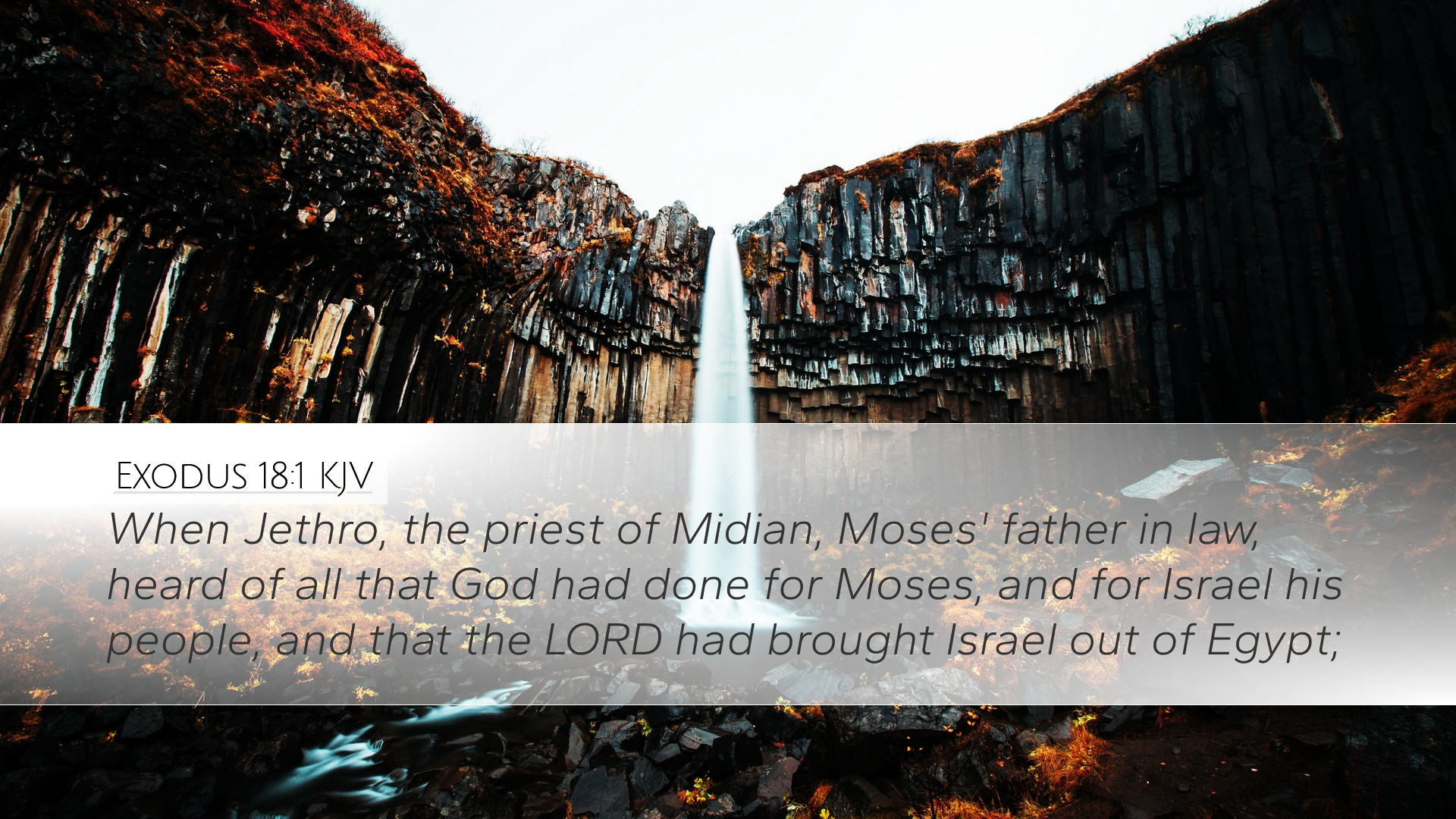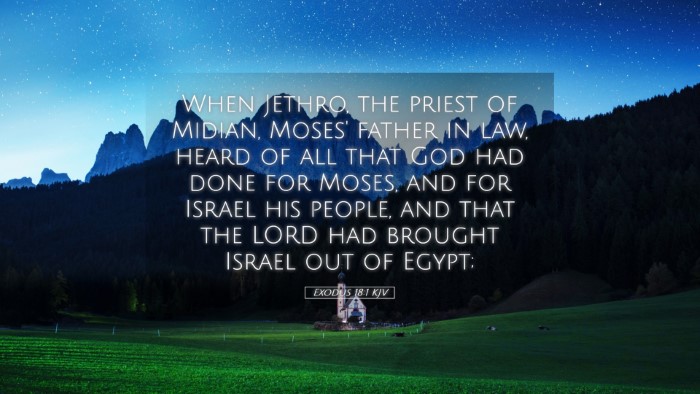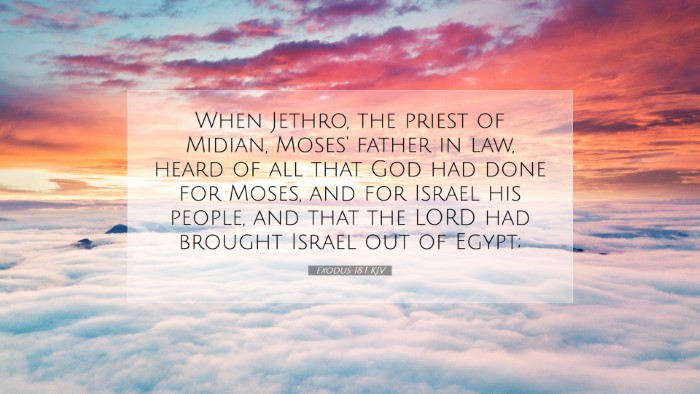Exodus 18:1 Commentary
Verse: "When Jethro, the priest of Midian, Moses’ father-in-law, heard of all that God had done for Moses, and for Israel his people, and that the Lord had brought Israel out of Egypt."
Introduction
This verse sets the stage for a critical episode in Moses' leadership following the exodus of the Israelites from Egypt. The arrival of Jethro, Moses’ father-in-law, not only signifies familial connection but also emphasizes the importance of divine intervention and counsel within the community of faith. It invites reflection on the themes of recognition of God's work, the importance of leadership structure, and the value of wise counsel.
Theological Insights
Jethro as a Symbol of Recognition
Matthew Henry notes that Jethro’s role highlights the recognition of God’s power and action. As a priest of Midian, Jethro is not an Israelite, yet he acknowledges the greatness of the Lord's deliverance. This indicates that God’s works are not confined to one nation but have implications for all humanity.
The Importance of Divine Intervention
Albert Barnes observes the significant role that God plays in the liberation of Israel. The narrative emphasizes that the deliverance was solely by God’s hand. Jethro hears of this salvation and recognizes it as an act of divine providence, which invites believers today to also acknowledge the divine source of their own deliverance and blessings.
Leadership and Consultation
Commenting on Moses’ leadership, Adam Clarke underscores that the arrival of Jethro comes at a crucial time when Moses is bearing the heavy burden of leading a vast multitude. Jethro’s visit sets the stage for the establishment of a judicial system, illustrating the pragmatic side of governance and the necessity of delegation in leadership.
Contextual Analysis
Historical Context
From a historical perspective, Jethro's knowledge of what transpired in Egypt increases the weight of his counsel. He is aware of the miraculous acts of God, serving as a trustworthy adviser. This insight intertwines with the broader narrative of Israel’s struggle and preparation for nationhood.
Literary Context
This verse follows the dramatic events of the Exodus and the giving of the Law. It serves as a transition into a new phase of Israel’s journey — one where governance and community structure become essential. Jethro's arrival propels the narrative toward establishing a functional community that honors the Lord.
Practical Applications
The Role of Wise Counsel in Leadership
- Moses exemplifies humility by being open to counsel from Jethro, showing that even leaders can benefit from external perspectives.
- Pastors and leaders today are encouraged to seek wise counsel, recognizing that collaboration enhances decision-making processes.
The Recognition of God’s Work
- The acknowledgment by Jethro serves as a reminder for contemporary believers to recognize and celebrate what God is doing in their lives and in the lives of others.
- Testifying to God's faithfulness creates a culture of encouragement and faith within the community.
The Importance of Structure and Delegation
- The principles revealed through Jethro's counsel about leadership structures are vital for modern ecclesiastical governance.
- Establishing systems allows for more effective ministry and service, enabling leaders to focus on their divine calling.
Conclusion
Exodus 18:1 serves as a powerful reminder of the interplay between divine action and the human response to that action. Jethro’s acknowledgment of God’s work is a pivotal moment that encourages believers to recognize the breadth of divine providence. Furthermore, the value of wise counsel, demonstrated in this narrative, continues to resonate in today’s ministry and community contexts. As we consider the lessons from this verse, we are called to remain open to God's guidance through others and to participate actively in acknowledging His works in our midst.


